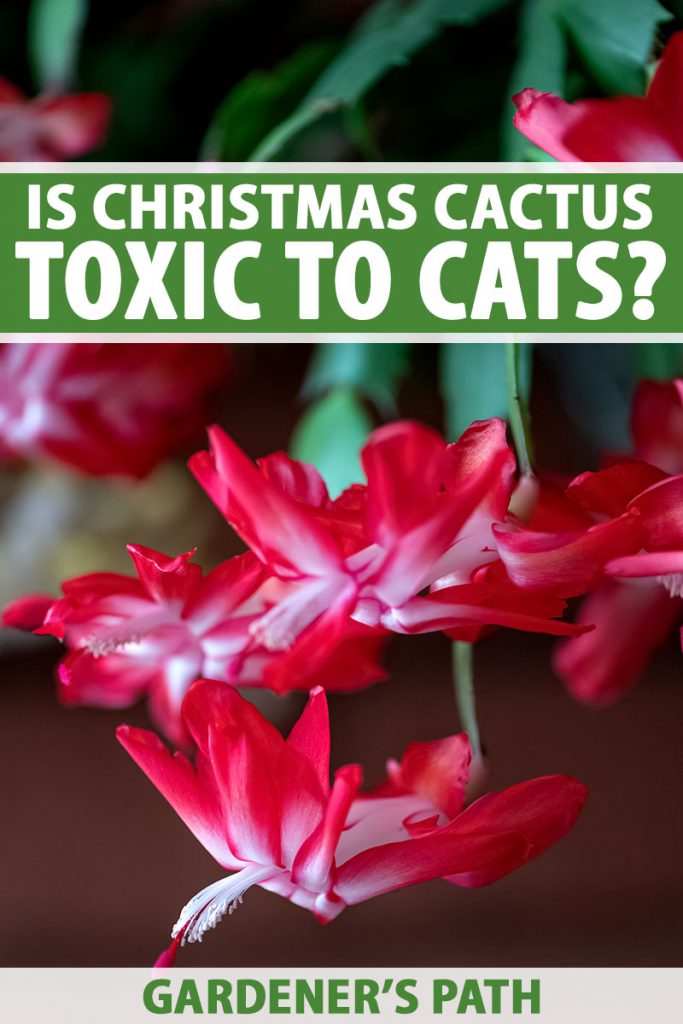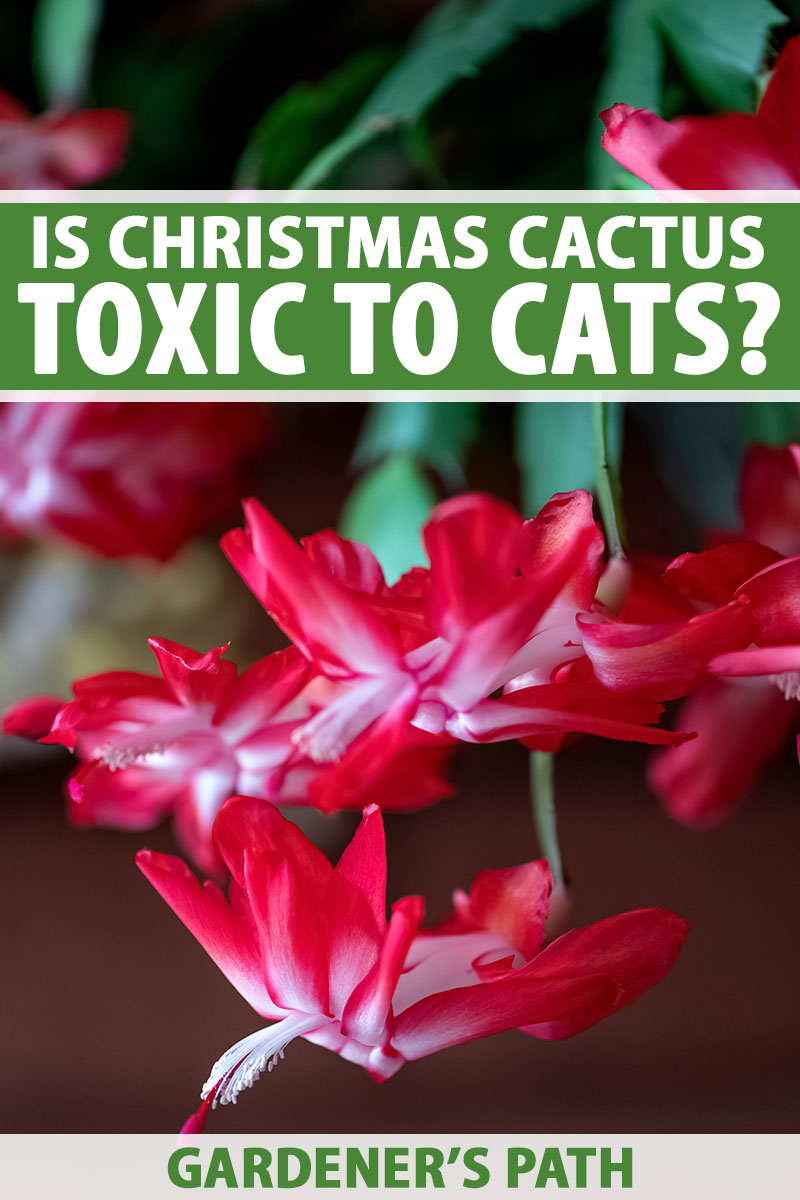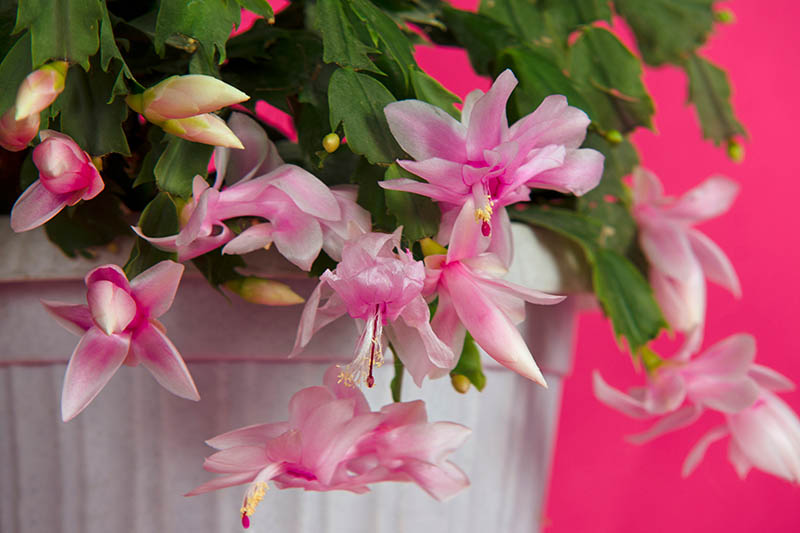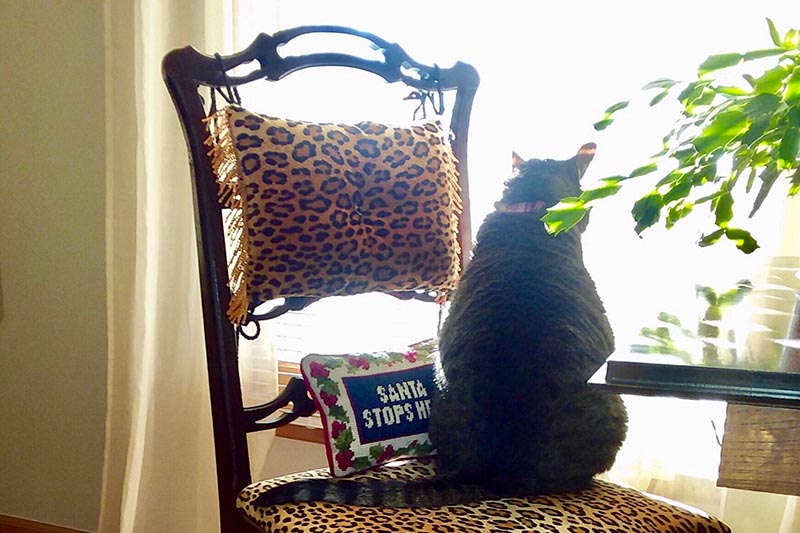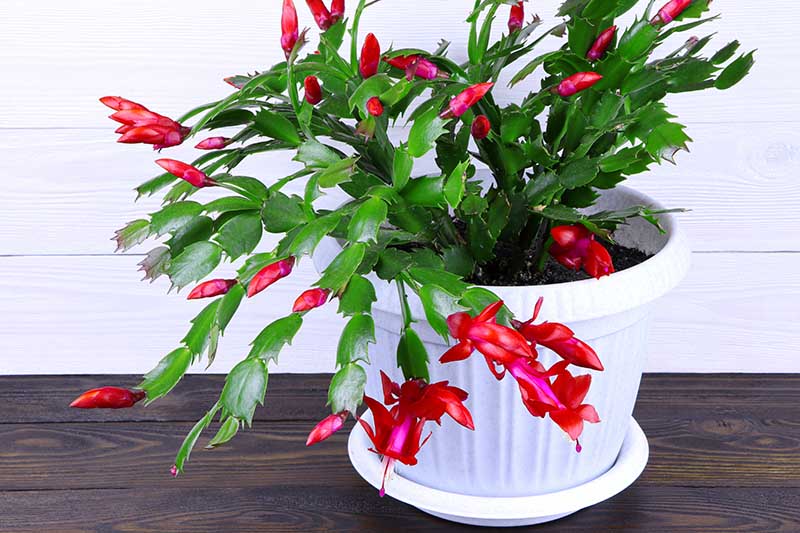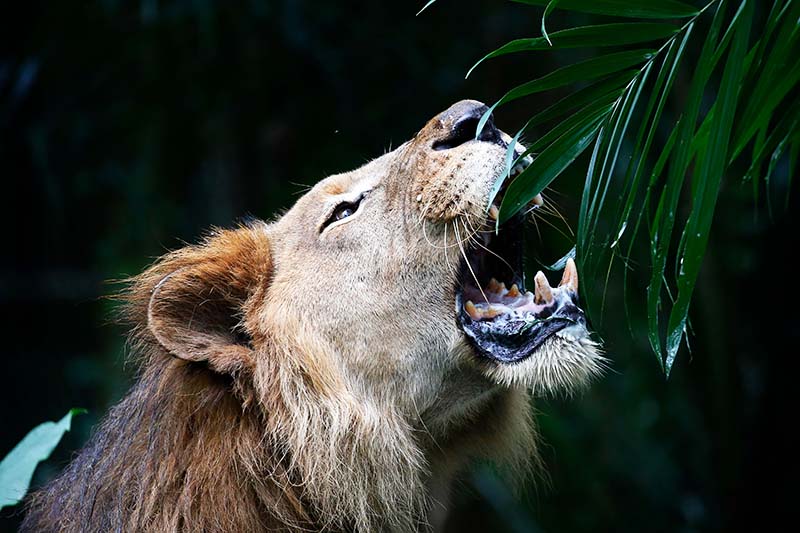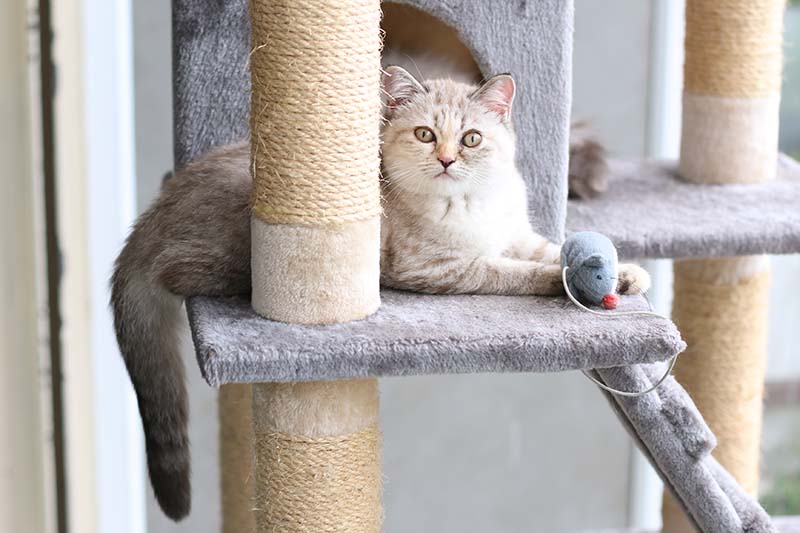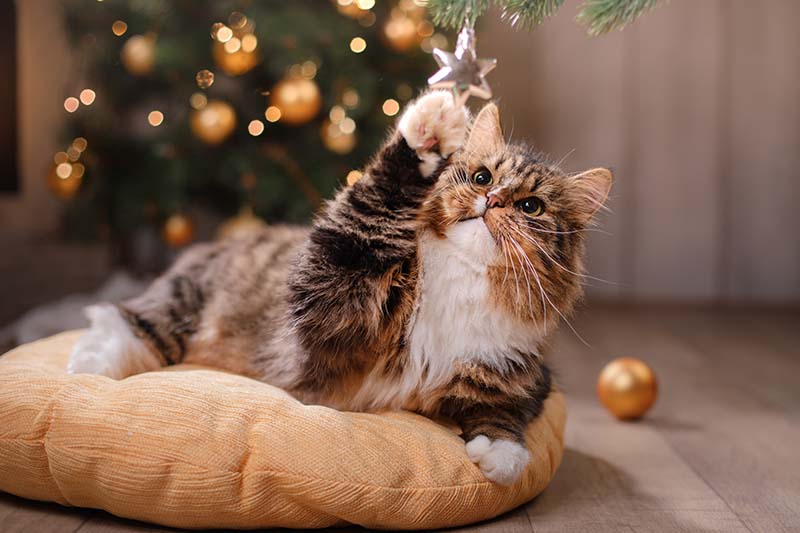And the holiday season can cause even more headaches for pet parents, with dazzling amaryllis flowers, poinsettia plants, and festive decor that may include evergreens, berries, and mistletoe to consider. Not to mention holiday trees adorned with ornaments and lights twinkling in the corner of the living room. We link to vendors to help you find relevant products. If you buy from one of our links, we may earn a commission. Unlike its desert-dwelling cousins, Christmas cactus doesn’t have the formidable spikes usually associated with cacti, making it a friendly addition to your houseplant collection.
Are you wondering if it’s safe to gift a Christmas cactus to your best crazy-cat-lady friend or thinking about welcoming one into your own feline-filled home? In this article, we discuss whether Schlumbergera is poisonous to cats. Here’s what I’ll cover:
Is Christmas Cactus Toxic to Cats?
The short answer to this question is “no.” According to the ASPCA, this plant is nontoxic to cats, dogs, and horses.
However, that doesn’t mean that kitty can munch on the stems and flowers with no ill-effects. The pet poison helpline says that “serious toxicity is not expected,” but diarrhea, vomiting, and nausea may occur if any part of the plant is ingested. So what does this mean? Unlike some highly toxic plants, such as true lilies, which can cause acute kidney failure in short order, Christmas cactus is a plant you can welcome into your home without worrying about your pet – if you take some precautions. In the 2013 edition of “Small Animal Toxicology,” author Sharon M. Gwaltney-Brant says that in cases where otherwise healthy cats have ingested stem segments of the Christmas cactus, symptoms will typically resolve themselves, although you may need to withhold food to allow the digestive system to recover. It will also depend on just how much of the plant kitty has eaten. Small amounts may have no effect whatsoever, though larger quantities may end up regurgitated behind your sofa.
However, if your cat is very young, old, or has pre-existing medical conditions, things can be a bit more serious. Veterinary attention may be required if the cat shows prolonged or severe distress, and in these cases may need to be treated with antiemetic or antispasmodic medication. And even though the plant itself is not toxic, you’ll need to take care with any pesticides you may apply, and read the label carefully, as many of these can contain poisonous chemicals. What should you do? If you see your cat eating your Christmas cactus plant, the first step is to remove it, and place it somewhere that your pet can’t access it. Keep an eye on your pet and see if he or she displays any symptoms. If he or she is otherwise healthy, there will most likely be no ill-effects. However, keep in mind that if you have a number of different houseplants in addition to Christmas cactus, your cat may have been munching on something that is toxic. If your pet displays symptoms of poisoning, such as excessive vomiting, diarrhea, or discomfort, consult a veterinarian or call poison control immediately.
Why Do Cats Eat Houseplants?
Felines are obligate carnivores, which means they require a meat-based diet and cannot survive on plant-based foods alone. But as any cat parent knows all too well, our felines will happily munch away on grass, houseplants, and other vegetable matter. We often find evidence of this on our carpets, or strategically placed where we can step straight into it. Recent research suggests that carnivores, including domestic cats, eat grass and other plant matter to rid themselves of internal parasites.
Wild felines, such as lions, often have a high worm burden and eating non-digestible, fibrous plant matter can help to expel these from the intestines. Of course, our cats haven’t had the memo that those horrible pills we force down their throats every three months take care of this for them. Boredom, curiosity, and playfulness can also cause your pet to take an interest in your houseplants. Even if they are not purposefully eating them, in the process of play they may bite and inadvertently ingest some parts.
Providing kitty with plenty of enrichment and alternative toys can prevent them from using your houseplants as entertainment. But not always. If you have a particularly curious or playful puss, consider placing your Christmas cactus somewhere out of reach. “Out of reach” can obviously mean different things to different cats. When you have kittens shimmying up the curtains, the only place “out of reach” may be “out of the house,” and in these cases, you need to provide something more interesting for them to play with.
Even though Christmas cactus isn’t poisonous, other holiday decor may cause issues for your cats. Tinsel, ribbons, and small ornaments can cause major damage to the feline digestive system. Thankfully, another holiday favorite, the poinsettia plant is not toxic, in spite of its reputation. Amaryllis, however, is toxic, according to the ASPCA. Do you have pets that are interested in your houseplants? How do you keep them safe? Let us know and share your top tips in the comments section below. And for more information about growing Christmas cactus, check out these guides next:
How to Grow and Care for Christmas Cactus How to Make Your Christmas Cactus Bloom? Why Do I See Hair-Like Roots on my Christmas Cactus?
© Ask the Experts, LLC. ALL RIGHTS RESERVED. See our TOS for more details. Uncredited photos: Shutterstock. With additional writing and editing by the author’s feline friend, “Frankie.” The staff at Gardener’s Path are not medical or veterinary professionals and this article should not be construed as medical advice intended to assess, diagnose, prescribe, or promise cure. Gardener’s Path and Ask the Experts, LLC assume no liability for the use or misuse of the material presented above. Always consult with a veterinarian if your animals are displaying symptoms of toxicity.
